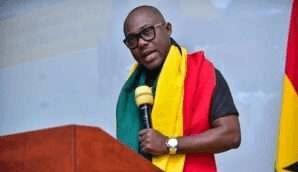The Office of the Special Prosecutor (OSP) in Ghana, tasked with combating corruption, is facing scrutiny for its perceived waning impact. Concerns have been raised about the effectiveness and efficiency of the OSP in its mission to investigate and prosecute corruption cases.
Critics argue that the OSP has been hindered by challenges such as resource constraints, legal impediments, and the need for stronger institutional support. The office’s ability to deliver on its mandate has been questioned, with some suggesting that it has not lived up to the expectations set when it was established.
Critics argue that rushing investigations may compromise the quality and thoroughness required for successful prosecutions. Additionally, concerns have been raised about the closure of certain investigations, such as the one involving bribery allegations against Members of Parliament. The decision to close cases without pursuing criminal proceedings has led to skepticism about the OSP’s commitment to holding individuals accountable for corrupt practices.
The OSP’s impact is also influenced by the broader anti-corruption landscape in Ghana. The fight against corruption requires a multi-faceted approach involving not only investigative bodies but also systemic reforms, public awareness, and strong political will. Some argue that the OSP’s effectiveness is hampered by a lack of comprehensive anti-corruption strategies that address the root causes of corruption and promote a culture of transparency and accountability.
To enhance the OSP’s impact, there are calls for increased resources, legal reforms, and collaboration with other anti-corruption agencies. Strengthening the institutional framework and ensuring independence from political interference are essential for the OSP to regain public trust and deliver on its crucial mandate in the fight against corruption.

University of Ghana Professor Ransford Gyampo has expressed skepticism regarding the Office of the Special Prosecutor’s (OSP) assertion that Member of Parliament for Asante Akim North, Kwame Andy Appiah-Kubi, was uncooperative in the investigation of bribery allegations.
Prof Gyampo, emphasizing Appiah-Kubi’s legal acumen, questioned the OSP’s claim during an interview.
Gyampo criticized the OSP’s perceived haste in handling cases, urging a more meticulous approach.
“I do not believe in the conclusion that Andy Appiah-Kubi was not trying to cooperate. I don’t trust what OSP is saying. I know Appiah-Kubi, he is a lawyer and he knows what he says at any particular time as a lawyer and so I will find it difficult to agree with the OPS.”
Professor Ransford Gyampo
He cautioned that repeated failures could adversely impact the prospects of young professionals seeking future appointments.
“The OSP is always rushing and is in a hurry to please people, if he keeps rushing he will keep failing. If he fails consecutively like this he will shut the door for future appointments of young people, he should take his time to do a lot of hard work.”
Professor Ransford Gyampo
The Special Prosecutor, Kissi Agyebeng, had ordered the closure of investigations into Appiah-Kubi’s allegations that 80 NPP MPs received bribes to withdraw their demand for Finance Minister Ken Ofori-Atta’s resignation.

Agyebeng stated that proceeding with criminal proceedings against the identified suspect would serve no purpose at this time, leaving room for potential re-opening based on future developments.
The allegations, initially brought forward by Appiah-Kubi, claimed that a wealthy businessman attempted to bribe him and his fellow NPP MPs, triggering an investigation by the OSP.
“…the Special Prosecutor directs the closure of the investigation in respect of allegations that a well-known and wealthy businessman attempted to bribe a section of the majority caucus of Parliament. The Special Prosecutor determines that the institution of criminal proceedings, at this time, against the OSP’s identified suspect would serve no useful purpose.”
OSP



















